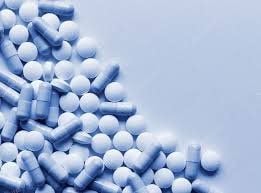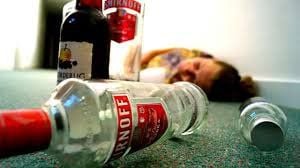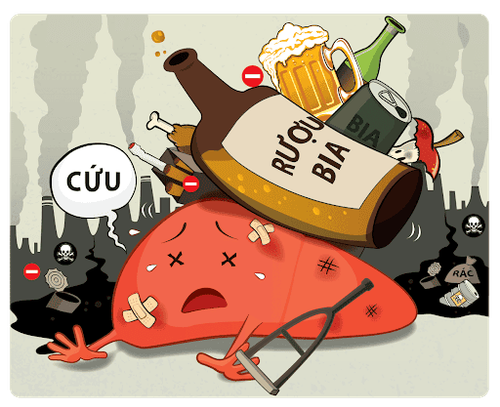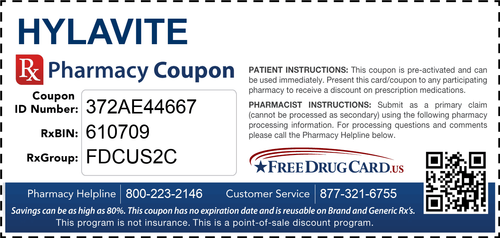This is an automatically translated article.
Alcoholism is a fairly common disease in our country today, accounting for about 1-10% of the population and causing serious effects on the health, psychology and life of many people. Stopping or giving up alcohol is also difficult because patients often experience alcohol withdrawal syndrome with unpredictable signs and symptoms.
1. Overview of alcohol withdrawal syndrome
Alcoholics who suddenly quit or stop drinking will often experience a series of changes in the body, many of which can be life-threatening. The syndrome that occurs after a patient suddenly quits drinking is called Alcohol Withdrawal Syndrome (AWS).
Alcohol withdrawal syndrome (alcohol withdrawal syndrome) occurs in people who are already addicted to alcohol, but for some reason they suddenly stop drinking or significantly reduce their daily alcohol intake, such as:
Illness Internal medicine: Medical diseases such as infections, high blood pressure, peptic ulcers, duodenal diseases, hepatitis, cirrhosis, chronic glomerulonephritis ....account for 75% of the reason patients have to stop drinking alcohol. Medical diseases: Including trauma, appendicitis, acute pancreatitis ... accounts for 20% of alcohol withdrawal cases. Voluntary cessation of alcohol: Only 5% of alcohol withdrawal cases.

Hội chứng cai rượu (hội chứng ngưng rượu) xuất hiện ở những người đã nghiện rượu rồi, nhưng vì một lý do nào đấy họ ngừng uống đột ngột
2. Manifestations and diagnostic criteria for alcohol withdrawal syndrome
Usually after stopping drinking, within 6-24 hours, the patient will have the following manifestations:
Strong craving for alcohol: This is a mandatory sign in all people who quit drinking. The patient will crave alcohol so much that all thoughts and actions are often focused on adding more alcohol to the body. Anorexia, vomiting, nausea: Patients are often in a state of anorexia, do not want to eat anything. If you eat, you will often feel nauseous, vomit or vomit all the food you have eaten, except for alcohol. Tremor: Usually appears 2-3 hours after stopping drinking alcohol. The patient has tremors in the limbs, wobbly walking and difficulty keeping balance. Excessive Anxiety: On the 2nd day after alcohol withdrawal, patients are prone to anxiety and panic, often fearing that something bad will happen to them. Patients are easily confused, the condition tends to increase in the evening. Tachycardia, high blood pressure, sweating: The patient may have a rapid pulse of more than 100 beats/minute, high blood pressure may reach 180-200mmHg, abnormal increase or decrease. Body temperature rises to 38-39 degrees Celsius due to muscle tremors, dehydration, and electrolyte loss. These symptoms are usually most apparent after 24-36 hours of alcohol cessation and gradually disappear after 48 hours. Insomnia: A very common symptom of alcohol withdrawal. From the first night after alcohol withdrawal, the patient had difficulty falling asleep, sleeping lightly and easily having nightmares, waking up in the middle of the night, and feeling tired for a long time. Insomnia will persist and peak on the 3rd, 5th day after alcohol withdrawal, patients may have complete insomnia. Delusions and hallucinations: About 85% of patients with alcohol withdrawal will experience hallucinations, hallucinations, paranoia with rich content such as jealousy, being harmed, seeing ghosts...etc. Psychomotor activity: After experiencing the above symptoms, the patient may scream, curse, break furniture, beat his wife, children... to have access to alcohol again. Epileptic seizures: Patients with alcohol withdrawal usually develop within 6 to 48 hours of stopping drinking. Seizures are sudden and dangerous and need to be monitored and handled. Delirium: Considered one of the psychiatric emergencies, if not treated early, the mortality rate of alcohol delirium accounts for about 2-10%, often due to cardiovascular, metabolic or infectious complications. .

Được xem là 1 trong những cấp cứu về mặt tâm thần, nếu không được can thiệp sớm thì tỷ lệ tử vong của sảng rượu chiếm khoảng 2-10%
3. Treatment of alcoholism and alcohol withdrawal syndrome
Patients with severe alcohol abuse will usually be assigned to psychiatry and inpatient treatment. Here, the patient is asked to stop drinking suddenly and is given supportive medicine to make the alcohol withdrawal process more favorable.
3.1. Benzodiazepines
As the first choice for treatment of alcohol withdrawal syndrome because of its anticonvulsant efficacy, prolonged metabolism, safer than chlormethiazole, effects on the neurotransmitter system, and prevention of complications .
The drugs that can be used are Diazepam, Chlordiazepoxide and Lorazepam, used in either a high dose regimen or a tapered dose:
High dose from the beginning: 20mg Diazepam /in 1-2 hours until the patient is sedated. Then stop the drug and let the drug's effectiveness decrease slowly according to metabolism. Taper dose: 5-10mg Diazepam every 4-6 hours for 1 to 3 days, then reduce dose for the next 4-7 days. 3.2. Phenytoin
No more prominent efficacy in seizure prevention but may reduce intermittent or partial seizures in patients with a history of epilepsy or traumatic brain injury Brain .
Hospitalized patients with signs of alcoholic liver damage who need careful monitoring and care to prevent hepatic coma (hepatic encephalopathy) should be prescribed Lorazepam or because Oxazepam is not oxidized in the liver. Patients unable to take oral medications can take lorazepam intramuscularly.
3.4. Treatment of electrolyte disturbances
Patients with severe alcohol withdrawal syndrome often experience electrolyte disturbances, especially during episodes of alcohol delirium. Patients can lose up to 4-5 liters of fluid/day, so electrolytes should be monitored daily and adjusted right from the time the patient is admitted to the hospital. Patients are also encouraged to drink enough water, provide enough nutrition, supplement vitamins, trace elements (Mg, Ca, Fe...) for the body.
The signs of alcohol withdrawal syndrome often manifest themselves in a variety of ways and are often hidden in other underlying medical conditions. Overcoming these symptoms and helping the patient to quit alcohol completely requires patience and determination on the part of the family, the physician, and the patient himself.

Những bệnh nhân bị hội chứng cai rượu nặng thường bị rối loạn điện giải
Vinmec International General Hospital with a system of modern facilities, medical equipment and a team of experts and doctors with many years of experience in medical examination and treatment, patients can rest assured to visit. examination and treatment at the Hospital.
Please dial HOTLINE for more information or register for an appointment HERE. Download MyVinmec app to make appointments faster and to manage your bookings easily.













